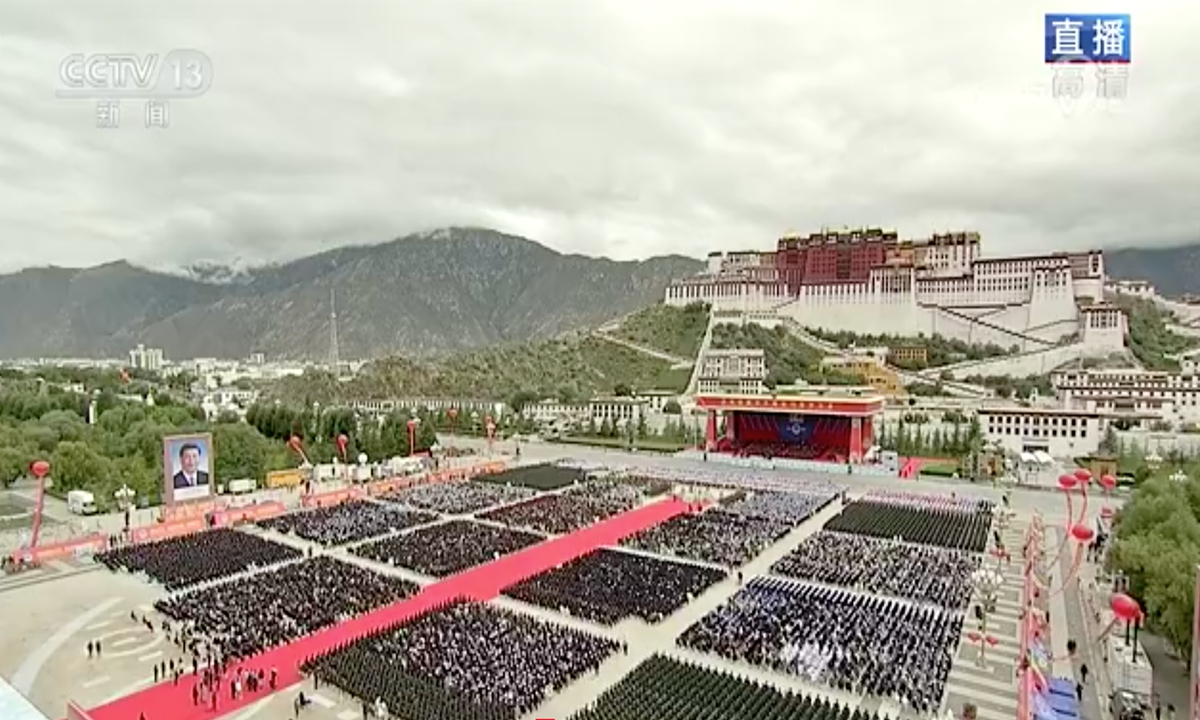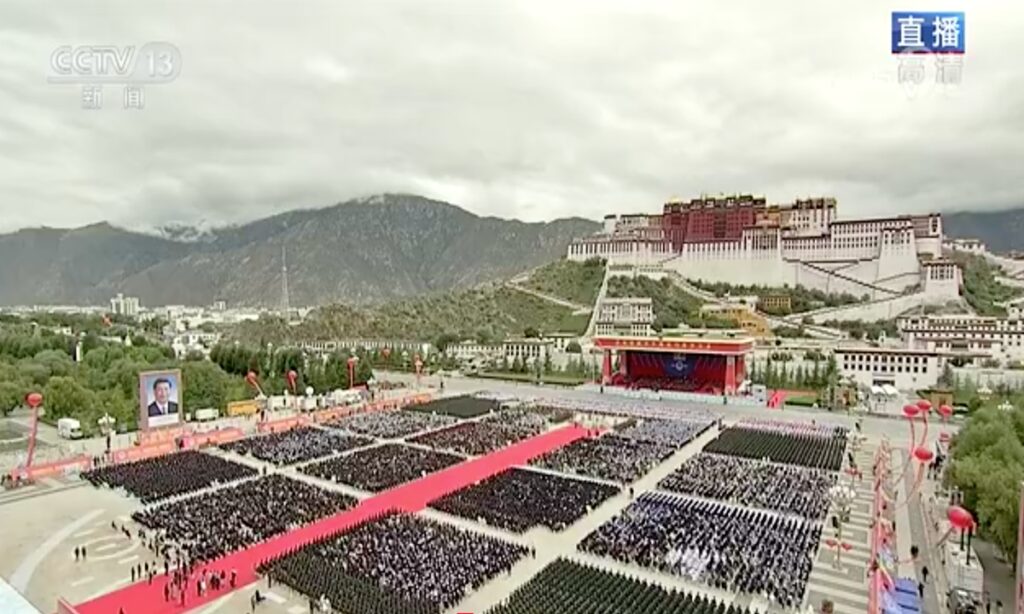A grand celebration was held in Lhasa, capital city of Southwest China’s Tibet Autonomous Region, on Thursday morning to mark the 70th anniversary of the peaceful liberation of Tibet, during which senior officials underlined the development achievements in the region and the importance of border construction.
When the celebration meeting was held at the square in front of the Potala Palace, tens of thousands of people participated, including representatives of local residents, students, military and police officers. The green hills in the background were decorated with a large slogan, reading “Long live the motherland.”
The national flag of the People’s Republic of China was raised at the beginning of the celebration. People sang the national anthem.
Senior officials from the Central Committee of the Communist Party of China (CPC) and regional government, Tibet Military Area Command, together with local residents made remarks at the meeting. The 11th Panchen Lama also attended the event.
China’s top political advisor Wang Yang, who led a central government delegation to Tibet, called the peaceful liberation of Tibet in 1951 “a major victory in the cause of liberation of the Chinese people and China’s reunification,” saying it marked a historic transition with epoch-making significance for Tibet.
“Since then, Tibet has embarked on a path from darkness to brightness, from backwardness to progress, from poverty to prosperity, from autocracy to democracy, and from closeness to openness,” Wang said.
The GDP in Tibet soared past 190 billion yuan (about $29.3 billion) in 2020 from a mere 130 million yuan in 1951, said Wang.
“It has been proved that without the CPC, there would not be a new Tibet,” Wu Yingjie, secretary of Tibet Autonomous Regional Committee of the Communist Party of China, said at the meeting. “Nowadays, people in Tibet value the ethnic unity like the way they value their lives.”

The meeting to mark the 70th anniversary of the peaceful liberation of Tibet in Lhasa, capital city of Southwest China’s Tibet Autonomous Region, on Thursday morning
Since the 18th National Congress of the CPC held in 2012, stability, development, ecology and border-area consolidation have become the four major issues?in Tibet.
The population living at the border regions in Tibet has increased 10.5 percent, Wu said.
According to Wu, transfer payment to the border regions have been enhanced, subsidies to border residents have been “largely increased,” and 21 border counties in Tibet are all under the aid of the central and national-level governmental departments.
“We have seen the true face of the 14th Dalai Lama. We will not be deceived anymore,”said a representative of local resident at the meeting. “I, on behalf of the Tibetan people, vow that those who conduct secession are our enemies and will only come to a sticky end.”
The celebration meeting finished at around noon with people at the scene singing “Song of Motherland” together.
With the peaceful liberation in 1951, the people of Tibet broke free from the fetters of invading imperialism for good, and embarked on a bright road of ethnic unity, progress and development, according to the Xinhua News Agency.
By the end of 2019, all registered poor residents in Tibet had shaken off poverty, marking the elimination of absolute poverty in the region for the first time in history.
The meeting to mark the 70th anniversary of the peaceful liberation of Tibet in Lhasa, capital city of Southwest China’s Tibet Autonomous Region, on Thursday morning



